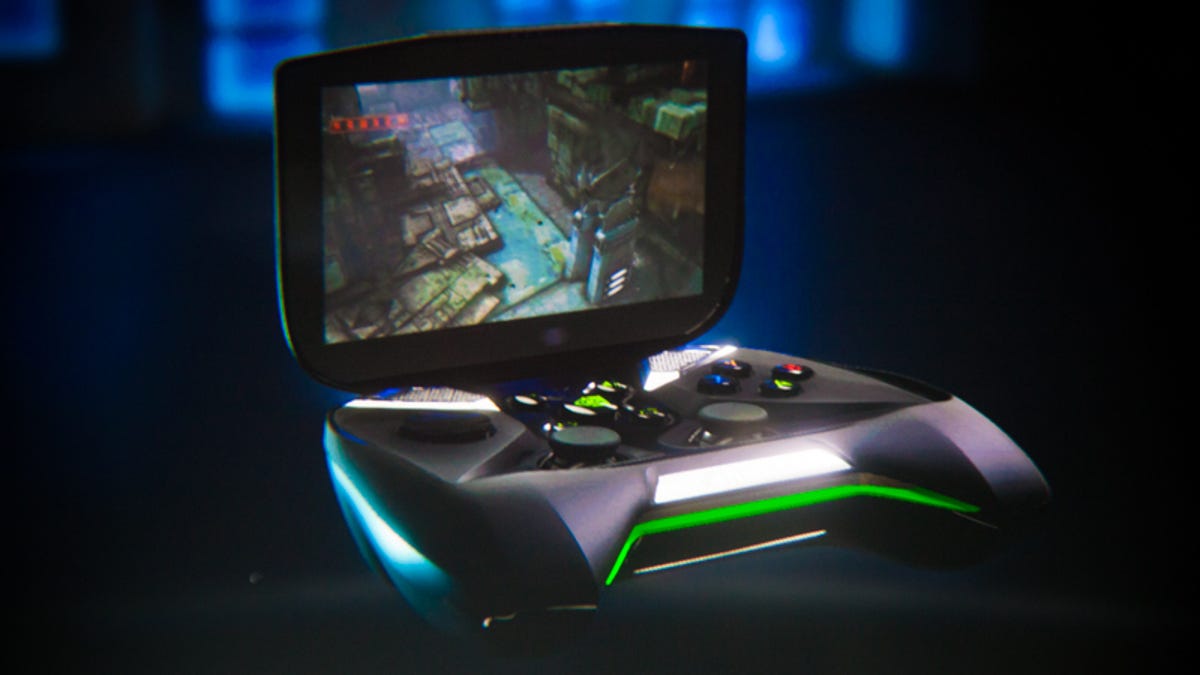Here's why Nvidia's $299 Shield gaming handheld is a steal
<b>commentary</b> The cheap-to-free Android games change the price equation for handheld console gaming.

My gut reaction to seeing the $299 price tag of
And that was after Nvidia cut the price of the Android-powered device -- which will be available June 27 -- by $50 on Thursday.
But in reality, the Shield may end up being a relative bargain for folks who want a dedicated gaming device. It comes down to the video games available on Android. Many are free, or cost 99 cents. An "expensive" game would run you $10.
Now compare that with the
Shield, which is a quasibridge between a console and true mobile gaming, is yet another illustration of the shift in gaming, where consumers are moving their budgets away from traditional console-based video games and more toward games on smartphones and tablets.
Just look at the stats. Video game industry sales in April fell by a quarter from a year ago even as smartphone and tablet sales continue to soar. The mobile app market is similarly exploding, led by the gaming category, and has sparked the creation of hit makers such as Rovio and Supercell.
The industry may very well be taking a pause before the next-generation consoles hit, but many people are already skeptical that they'll reach the highs the industry hit in the last decade.
Nintendo would argue that its consoles are the only place to get first-party titles based on storied franchises such as Mario and Donkey Kong. Indeed, Nintendo told CNET that it has no plans to build such games for tablets or smartphones, preferring to stick with a fully controlled Nintendo experience. Both Sony and Nintendo would also argue that the quality of its games give it an edge over an Android or iOS-based game.
But is that really the case? Games such as Electronic Arts' Real Racing 3 have shown that console-quality graphics can be had on mobile platforms. That plays into Shield's focus, which marries Android games with a console-quality physical controller (it feels very much like the much beloved Xbox 360 controller).
With Shield being Nvidia's showcase device for graphically intense games running on the company's line of high-end Tegra mobile processors, the games meant for the console are on par or better than what the Vita and 3DS have churned out. Titles like "Real Boxing" or "Shadowgun" push the envelope on Android games.
Shield certainly isn't for everyone. The device is really designed for hard-core gamers or people who are fans of physical controls.
Most people are just going to stick to their Android handsets or iPhones for their mobile gaming, but those aren't the people who would buy a portable gaming device anyway. For them, gaming is just one of many things they do on their smartphone.
It's easy to get a little gun-shy when looking at Shield's price. At $299, it's only $100 cheaper than the upcoming next-generation PlayStation 4, and $200 less than the Xbox One. For a more accurate comparison, the PS Vita costs $249 and the 3DS costs $170. Apple's iPod Touch, touted as a gaming device, starts at $299.
Ultimately, it's more than just the hardware. When considering a video game system, you need to consider the software. And in this case, the extensive -- and much cheaper -- library of Android games adds a lot of value to Shield.

